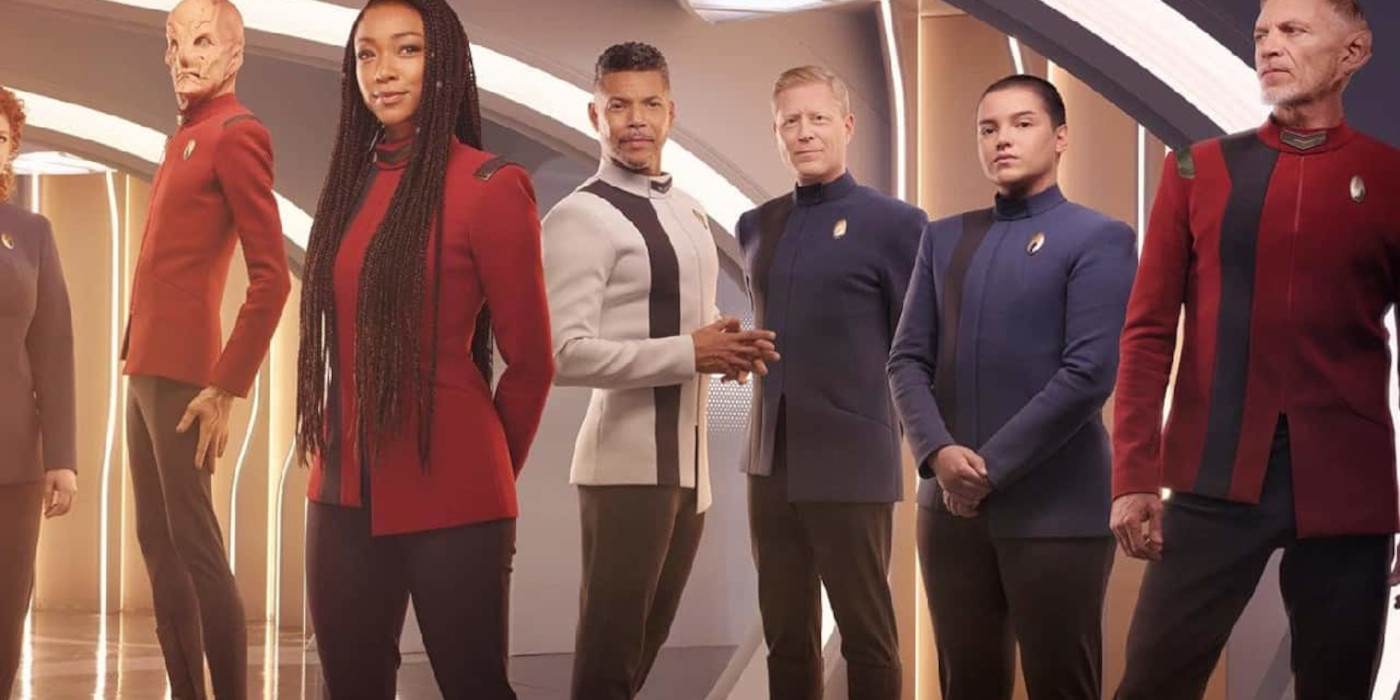‘Doctor Who’s ‘The War Between the Land and the Sea’ is a Good Idea, But It’s Complicated
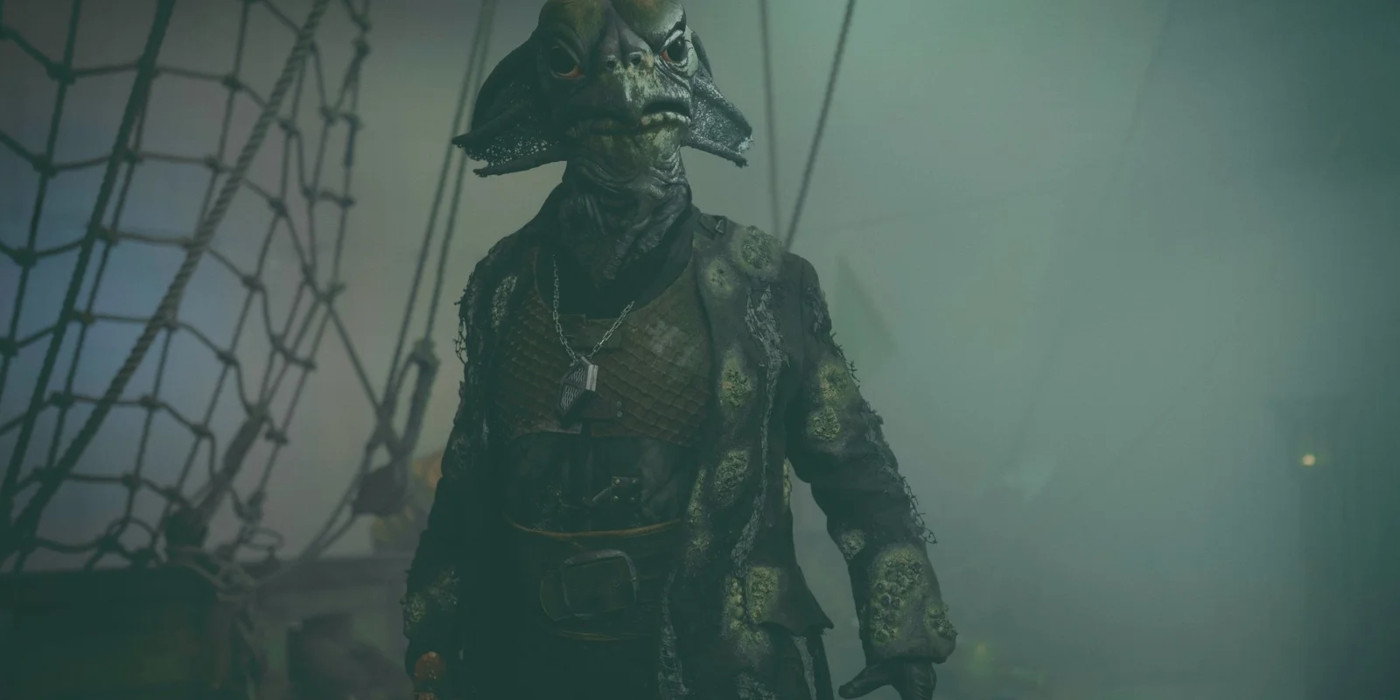
Doctor Who has a new spin-off on the way: The War Between the Land and Sea. It can be good, maybe even great. However…
People are full of opinions on Doctor Who as a rule, but it’s a little more intense recently. And you can chalk that up to a lot of things: new Doctor, old showrunner, the co-production with Disney Plus—there’s a lot of change happening. You see the scrutiny play out in a lot of ways.
But the uniform anxiety is over whether or not there will even be Doctor Who post 2025. Streaming as a business is not what it used to be. And the BBC is also barely hanging on. In the midst of all that, there’s a lot of debate concerning how Doctor Who can keep afloat.
Should the series cast a wide net and appeal to the perceived lowest common denominator? Or is the key in specificity? Is it the Who’s famous weirdness the key to its continued survival? Certainly that seems to be showrunner Russell T Davies’ belief about Doctor Who. With babies in space, musical monsters, and nepo baby vore, Doctor Who was very weird in 2024.
And now we have the upcoming spin-off, The War Between the Land and the Sea continuing the trend. But what makes this new show a complex proposition isn’t it’s long-winded title as most people think it is. There’s something under the surface which makes it both timely and risky in equal measure.
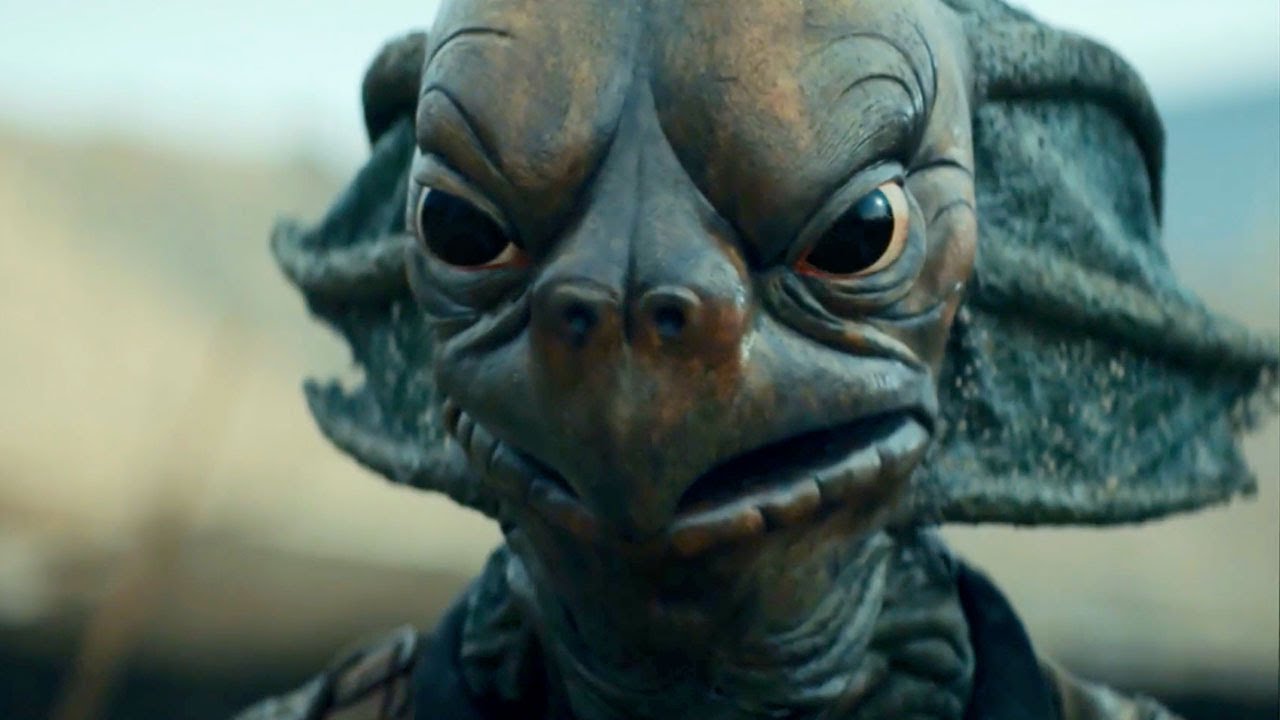
“Hey, What is the War Between the Land and the Sea?”
Like with the series Torchwood before it, The War Between the Land and the Sea investigates Earth without the Doctor. What happens when beings far beyond our philosophy appear and there’s no parent there to divine the light from the shadow? How do we react and, as we flail and fail to understand, what are the consequences that trip us towards enlightenment?
Oh, you meant literally “what is it about”. “The War Between the Land and the Sea” is about the the Sea Devils, a group of amphibious reptilian beings from Earth’s past coming into conflict with Earth’s current food chain toppers—the human race.
“There’s a race that lives beneath the oceans. They wake up, and they see the state of the oceans, that we have put it in,” explains Davies. “We have wrecked the place, and it is war. War on an epic scale.”
On the human side of the war we have long-time Doctor Who allies U.N.I.T. Specifically, we’ll see the return of Kate Stewart (Jemma Redgrave), Colonel Christofer Ibrahim (Alexander Devrient), and Scientific Advisor Shirley-Anne Bingham (Ruth Madeley). In addition we’ll see the return of Torchwood: Children of Earth character General Austin Pierce (Colin McFarlane). And both Gugu Mbatha-Raw and Russell Tovey will appear as new characters.
That’s what The War Between the Land and the Sea is literally about. But obviously it’s going to be about a lot more than that. And right there is where things get complicated.
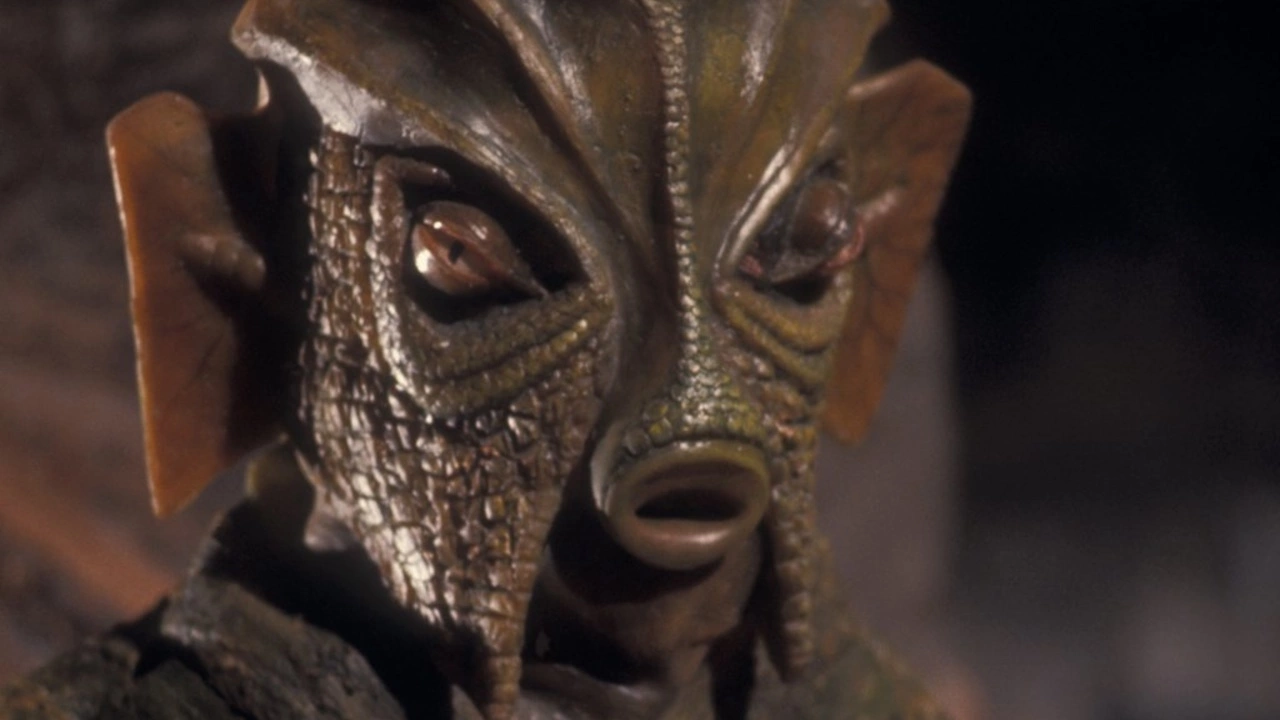
The Sea Devils Then and Now
Environmentalism is bread and butter for Doctor Who. In the ’70s and ’80s especially, the classic series loved talking about how the younger generation was fighting to get the older folks in power to change the path on climate change. And certainly that need has not changed in the real world. In fact, the environment’s never been in worse shape.
But when Doctor Who first introduced Sea Devil cousins the Silurians in 1970, it was a story about the occupation of Earth. Functionally it’s about who owns the planet. The Silurians think they do and humanity (who, in fairness, have been the ruling class for millennia) see themselves as sole owners.
The Doctor believes there can be compromise. But the Silurians try to wipe out humanity with a virus. And even when peace seems possible, U.N.I.T.’s Brigadier Lethbridge Stewart bombs the Silurians into oblivion. The Doctor is furious, but that’s effectively the end of it.
While I have no doubt that, based on Davies’ own description of The War Between the Land and the Sea, environmentalism will play a part, there’s a far more obvious modern parallel in 2024. To say that discussing Israel and Gaza in any context is a dicey proposition is perhaps the understatement of the year. But, intentionally or not, the parallels are there. The complexity lies in both how and if this Doctor Who spin-off intends to deal with those parallels.
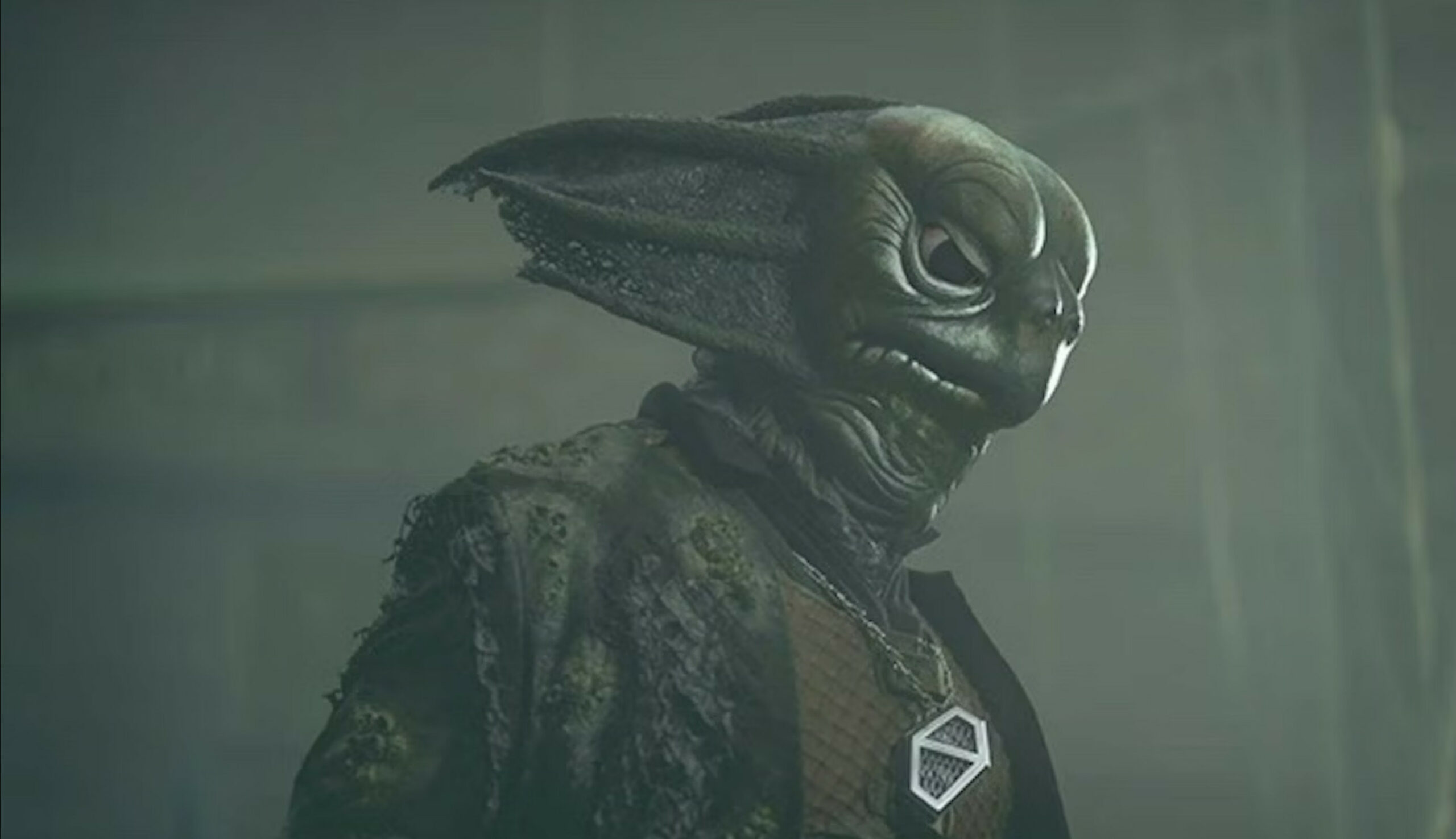
“The War Between the Land and the Sea” and Modern Conflict
People talk about what a mouthful this spin-off series’ title is but all I can think is how similar it is to the phrase “from the river to the sea”. And the point isn’t whether that’s intentional. The point is that any story which pits former and current owners of critical pieces of land in a war for survival is going to merit comparisons with what’s happening in Gaza.
Doctor Who isn’t afraid of taking on big issues, but it does usually do so from a basic perspective. Russell T Davies doesn’t want the show to be ableist, so Davros isn’t in a wheelchair anymore. Russell T Davies wants trans people to be treated with basic dignity so he writes a trans woman who saves the day.
And while there’s complexity to both those writing decisions, the point is that they can be done and the intentions can be clear. Doing a story that pits the Sea Devils against humanity in a fight for land will naturally invite comparisons with modern events. And people will wonder what Davies thinks about Gaza. Audiences will likely wonder if the writing is limited by Disney’s involvement.
In the end this feels like a damned if they do, damned if they don’t situation. On the plus side, people are probably going to watch! But regardless of what they see, the response will likely be divided. And one wonders how Doctor Who, a show already in the potential cancelation hairs, will weather the debate—especially if it does try to tackle modern events head on.





